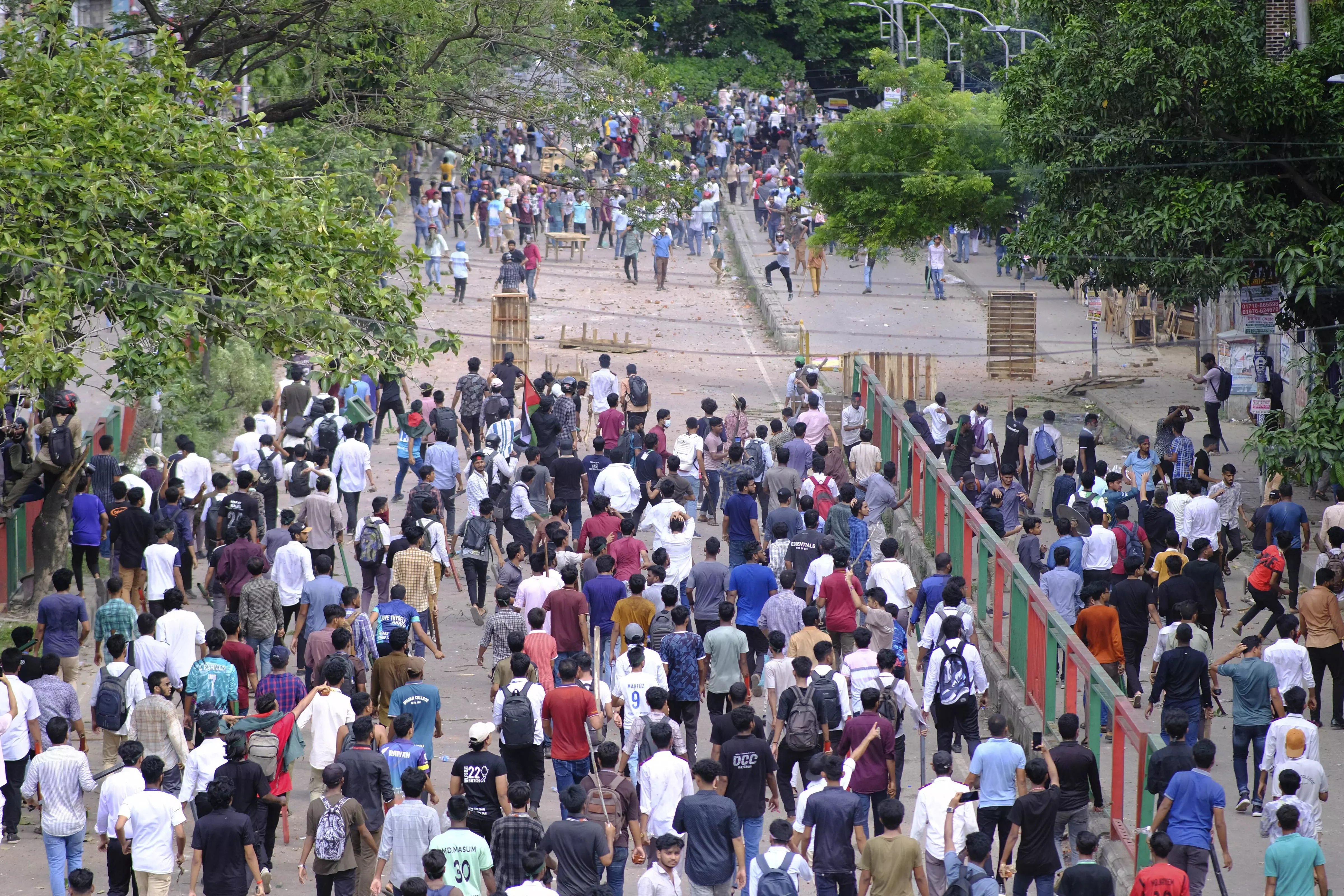
- Home
- India
- World
- Premium
- THE FEDERAL SPECIAL
- Analysis
- States
- Perspective
- Videos
- Sports
- Education
- Entertainment
- Elections
- Features
- Health
- Business
- Series
- In memoriam: Sheikh Mujibur Rahman
- Bishnoi's Men
- NEET TANGLE
- Economy Series
- Earth Day
- Kashmir’s Frozen Turbulence
- India@75
- The legend of Ramjanmabhoomi
- Liberalisation@30
- How to tame a dragon
- Celebrating biodiversity
- Farm Matters
- 50 days of solitude
- Bringing Migrants Home
- Budget 2020
- Jharkhand Votes
- The Federal Investigates
- The Federal Impact
- Vanishing Sand
- Gandhi @ 150
- Andhra Today
- Field report
- Operation Gulmarg
- Pandemic @1 Mn in India
- The Federal Year-End
- The Zero Year
- Science
- Brand studio
- Newsletter
- Elections 2024
- Events
- Home
- IndiaIndia
- World
- Analysis
- StatesStates
- PerspectivePerspective
- VideosVideos
- Sports
- Education
- Entertainment
- ElectionsElections
- Features
- Health
- BusinessBusiness
- Premium
- Loading...
Premium - Events

It is only to be expected that Opposition parties would try to take over the student movement to extricate themselves from the political wilderness
With more than 20 deaths in a fortnight of student agitation, Bangladesh is clearly on the boil. The Sheikh Hasina government has mishandled the entire issue – partly because of the ruling party’s near-complete disconnect with the grassroots, particularly the gen next, and partly because of its overriding arrogance.
The issue could have been resolved at the table by immediate negotiations when the protests had just started. Why a whole fortnight was wasted and why the student cadres of the ruling Awami League were unleashed on peaceful protestors defies political logic.
Student movements have a chequered history in Bangladesh – from the 1952 “Matribhasa”(Mother Language) movement to the 1971 Liberation War against Pakistan to the movement in 1980s to oust the Bangladesh military junta of General Ershad.
So, any ruling dispensation in Bangladesh should be worry when students are up in arms on any emotive issue, as is the case now.
HC verdict the trigger
The protests by students in Bangladesh erupted spontaneously on July 1 after a decision by the Bangladesh High Court to reinstate a 30 per cent government job quota for descendants of those who fought in the country’s 1971 war of independence.
The country has a 56 per cent reservation in government jobs for different categories. The protesters are not against some reservations – for disabled persons or women or ethnic minorities.
They only want the 30 per cent reservation for family members of Muktijoddhas, or freedom war veterans, to go.
Quota system
India rewarded freedom fighters with old age pension but not job reservation for their family members. It makes no sense to favour grandchildren of freedom fighters 50 years after they fought in the Liberation War against the Pakistan army.
This quota system was abolished in 2018 by Prime Minister Sheikh Hasina after widespread protests in Bangladesh. The June 5 court order, which said the abolition was illegal, has again triggered fresh agitation more widespread than before.
Student agitations in Bangladesh have a history of turning into mass popular movements. At the moment, that seems to be happening.
Spiral of violence
The Awami League alleges that Islamist Opposition parties have infiltrated the movement and set off the spiral of violence leading to deaths and much destruction. Opposition parties are expected to take advantage of such situations.
So, the Awami League can only blame itself for allowing the agitation to spin out of control.
“We are not against the quota system in general, but we want the 30 per cent quota for the descendants of 1971 freedom fighters to be abolished,” Nahid Islam, the coordinator of the anti-quota protests, was quoted by Reuters as saying. “Government jobs are the only hope for many young people in Bangladesh, and this quota system is depriving them of opportunities.”
Authenticity of list
Many protesters also doubt the authenticity of the list of veteran’s families, believing many have managed freedom fighter certificates through unfair means.
It is only to be expected that the Opposition parties would try to take over the student movement to extricate themselves from the political wilderness. The Awami League would have done the same if it was in Opposition.
If that has already happened, as alleged by pro- Awami media, the ruling party can only blame itself for initially taking the student protests too lightly and then coming out against the protestors all guns blazing with its student cadres fighting pitched battles with the protestors.
It has only enraged the students and entire universities across Bangladesh have erupted in protests. At least six deaths have been reported and hundreds of others have been injured. The transport system has been paralysed.
Encouraging meritocracy
The government has cancelled classes in public and private campuses across the country and closed down medical, textile, engineering and other professional colleges affiliated with the universities until further notice.
The pitch against the quota system is logical. Bangladesh cannot evolve as a modern industrialised nation with a knowledge economy unless it encourages meritocracy and that should extend to the bureaucracy and public services.
India gave pensions to freedom fighters to recognise their sacrifices after 1947. Bangladesh has good reason to honour its brave heart freedom fighters but not stretch the benefit across generations.
The Awami League should consider phasing out the quota system over the next five years that it expects to remain in power. And it should engage the students on the table rather than try crushing the movement by force.
Legal move
The government has filed a leave-to-appeal petition with the Appellate Division of the Supreme Court challenging the High Court judgement, which effectively reinstated quotas in government jobs. The attorney general's office submitted the petition to the apex court seeking a “leave” to scrap the HC verdict. This may be a step in the right direction.
But it will really be unfortunate if the legacy of the Liberation War is drowned in the ongoing confrontation over the emotive issue of quotas. Questioning both the extent and the duration of quotas makes sense.
What can never be accepted is questioning the very legacy of the Great Liberation War, which gave Bengalis an independent country and the promise of a successful nation-state. The corruption and misgovernance of the Awami League, particularly in the last few years, has unfortunately brought Bangladesh's gen next, to that very critical point where they see the lip service paid to the chetona (spirit) of the Liberation War as sound business for ruling party upstarts who have stashed millions abroad.
When Hasina openly admits her own assistant has left the country with 400 crore taka and promotes known pro-Pakistani elements in her power structure who have systematically defrauded banks and public financial institutions, there is good reason to doubt whether the legacy of the Liberation War is safe anymore.
That is something that India has good reasons to worry about as well.
(The Federal seeks to present views and opinions from all sides of the spectrum. The information, ideas or opinions in the article are of the author and do not necessarily reflect the views of The Federal.)


